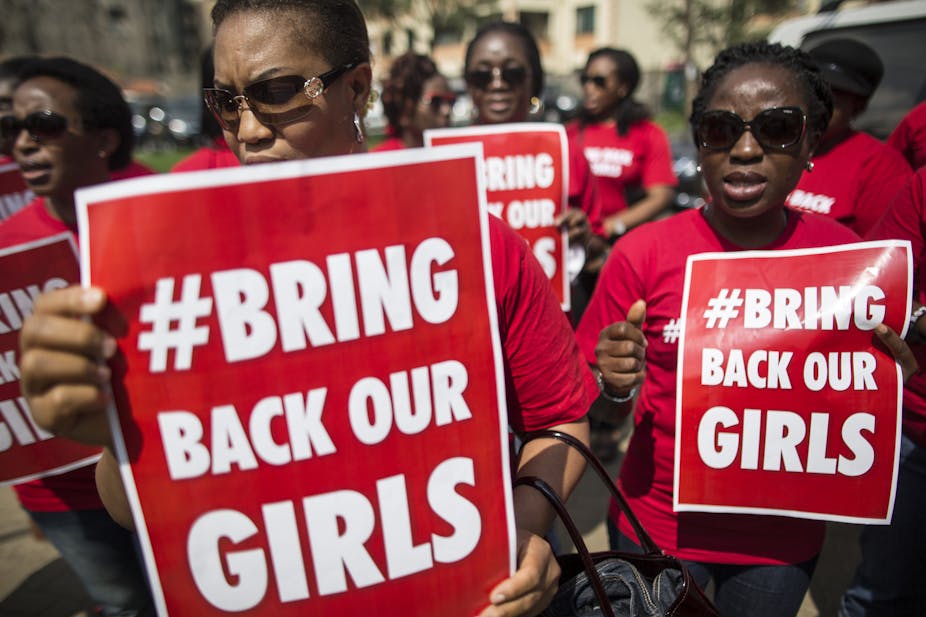Earlier this month, Nigeria marked a most unwelcome anniversary; a year of special measures in the three northern states of Adamawa, Borno and Yobe. Located in the north east corner of the country, snug against the international borders with Niger, Chad and Cameroon, these blighted provinces are the birthplace and main operational area of Boko Haram, the insurgent group which recently achieved new levels of infamy following its abduction of more than 200 schoolgirls.
Indeed, the special measures introduced by the Nigerian president, Goodluck Jonathan, were a direct response to the group and its activities, an attempt by Abuja to better assist the security forces in their efforts to destroy it.
Yet the measures are also a confession. They are an admission by President Jonathan that Boko Haram is an increasingly serious threat and that Nigeria is a failed state. Hopes of containing and defeating the group within the confines of everyday legal parameters have been well and truly smashed. Boko Haram demands additional attention beyond what the police, armed forces and security services normally provide.
The group is both a cause and a manifestation of Nigeria’s failure. It is a cause as its actions are placing parts of the country beyond the direct control of the Nigerian government. Abuja no longer exercises a monopoly over the legitimate means of coercion throughout the whole of its sovereign territory. It is a manifestation as it is, in part, a response to the government’s failure to provide Nigerians with the public goods that they have a reasonable right to expect to receive.
While the identification and classification of Nigeria as a failed state is entirely consistent with both academic and practioner definitions of failure, questions can be raised over what this label truly means. Certainly, it is now a widely accepted shorthand for political limitation, and widespread hardship and suffering. And certainly, these connotations are entirely consistent with Nigeria’s condition. Abuja’s writ is curtailed. The living standards of thousands of ordinary Nigerians are diminished.
Yet if this label is to be applied, great care must be taken when doing so. Not least, because of the implied temporal break inherent within it, the suggestion that there was a time before failure when Abuja exercised the necessary monopoly and furnished Nigerians with the public goods they deserve.
Clearly though, and in keeping with the view of Boko Haram as a manifestation of failure, Nigeria’s demise predates the introduction of the special measures and the group itself.

But if there was a time before failure, when and why did it end? The implications of this consideration reach far beyond Nigeria’s borders. The concept of state failure is premised on an idealised understanding of what a state is and should be doing that is rooted in European experience. But if the benchmark of statehood is European in origin, how applicable is it to Africa?
If successive governments of Nigeria, Niger and Mali have long struggled to fully control their territories and provide their citizens with public goods then how much of a departure from established practice do their current failures represent? Can they be labelled failed if they have rarely, if ever, conformed to this idealised notion? Or are they simply acting in ways entirely consistent with past behaviour? In which case, can they be described as failed since there is no significant change in what they are doing?
Such questions have political implications. The profound changes in international attitudes which helped lead to the demise of Europe’s overseas empires and the establishment of Africa’s independent states – and subsequent emergence of the phenomenon of state failure – preclude the renegotiation of the continent’s national borders. In the past 50 or so years since the “winds of change” brought independence to the African continent, only two new states (Eritrea and South Sudan) have formally been allowed to come into being. The international community has committed itself to working with the states that exist no matter how failed they might be.
This decision, by extension, obliges European and North American governments to encourage and assist their Nigerian, Nigerien and Malian counterparts to develop and behave in ways that they perhaps never have. The time may very well be nigh for a more fundamental rethink about the state of the state in Africa today.

